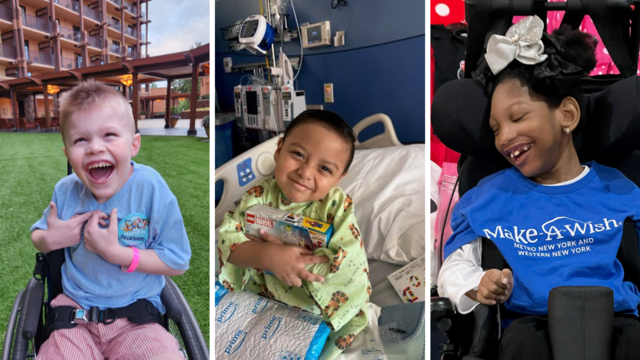The Medical Impact of a Wish
More Than a Moment of Joy - A Critical Part of Care
Too often, wishes are seen as “nice-to-have” moments - like a fun trip or feel-good distraction. But for children with critical illnesses, a wish can be a powerful part of the healing process. It’s not just about joy - it’s about resilience, mental health, and tangible medical outcomes.
Medical professionals across the country report that wishes can reduce stress, improve emotional wellbeing, and even increase a child’s willingness to comply with difficult treatments. In other words: a wish isn’t a break from care. It’s part of it.
Wishes and Medical Treatment: A Unified Approach to Healing
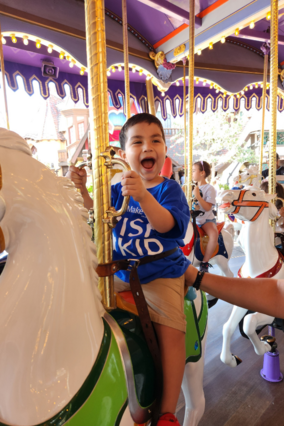
Make-A-Wish works in collaboration with medical professionals, social workers, and hospital teams to ensure each wish supports a child’s medical journey without interrupting it. Here's how a wish complements care:
Mental Health Support: Wishes reduce feelings of anxiety, depression, and hopelessness.
Resilience and Motivation: Children become more hopeful and optimistic, which can improve their outlook and response to treatment.
Improved Treatment Compliance: According to the 2022 Wish Impact Study, 89% of medical providers say a wish can increase a child’s willingness to comply with often difficult treatment protocols.
Restoration of Control: Children with critical illnesses often feel powerless and face severe restrictions due to treatment. Planning and anticipating a wish helps them regain agency in their lives.
“I’ve seen many kids go through some really difficult treatments. There’s not a lot of bright spots—but Make-A-Wish is one of them. A wish gives the whole family something to focus on beyond the illness. It has an amazing impact just on the child’s ability to survive.” — Dr. James Edwards
Healing the Whole Child
Medical professionals agree: true healing goes beyond medicine.
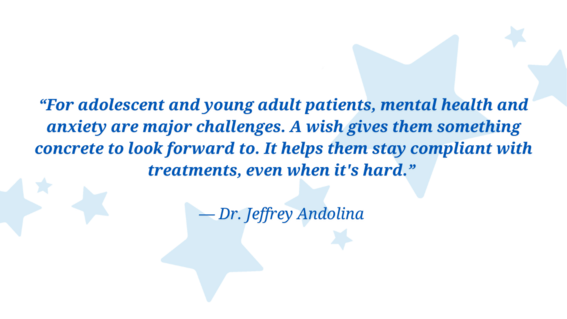
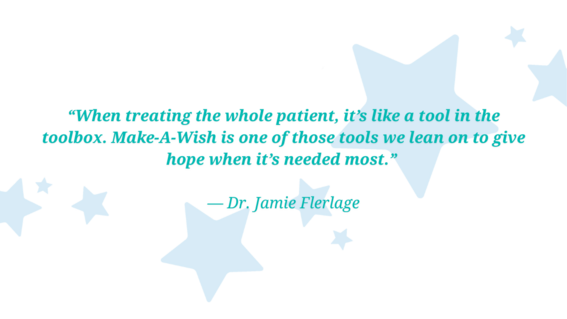
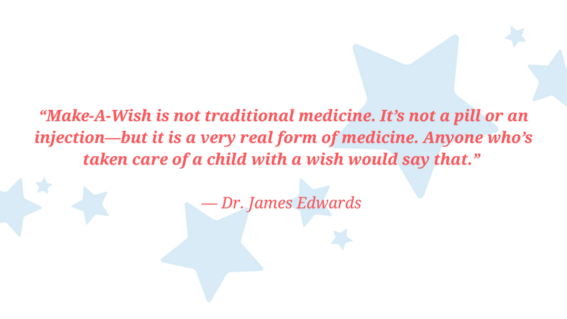
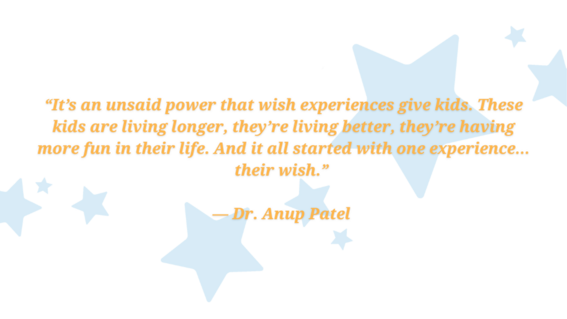
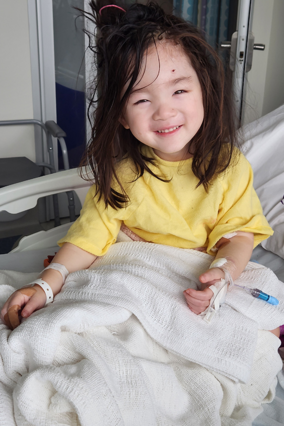
The Mental Health Connection
Critical illness takes a heavy toll on a child’s mental and emotional health. Many children report feeling anxious, isolated, or hopeless during treatment. In fact, nearly 9 in 10 wish alumni said they experienced traumatic stress related to their illness—but a wish changed that.
Wishes act as a powerful mental health intervention. They give children something to look forward to—a reason to dream, to plan, and to believe in a future beyond their diagnosis. Hospital staff describe wishes as a vital tool in building trust, improving outlook, and helping kids cope with the emotional weight of treatment.
Hope isn’t a luxury. For children in crisis, it can be the difference between despair and determination. A wish helps restore that hope.
“A wish can help a child visualize a future, take control, and imagine what else might be possible for them.” — Dr. Linda Addonizio
By the Numbers: Wish Impact Statistics
-
95% of wish alumni said their wish helped them overcome feelings of sadness an felt more hopeful for the future after their wish.
-
100% of medical providers report that the wish experience improves a
child’s – and their own – emotional well-being.
-
91% of wish parents believe the wish experience gave their child a better chance of surviving their critical illness, and say they believe a wish is a necessary part of a child’s treatment journey.
-
90% of medical providers said a wish serves as a coping mechanism and increased compliance with treatment protocols.
-
99% of wish alumni said their wish made them feel more joyful.
* From the 2022 Wish Impact Study
“You know, in medical school, I never learned of any medication that could provide a dose of hope. But the power of a wish can.”
— Dr. Michelle Pierson
Your support makes these powerful outcomes possible. When you give, you’re not just bringing joy - you’re helping a child heal.
